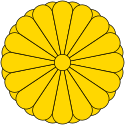
Back Eleccions generals japoneses de 2012 Catalan Shūgiin-Wahl 2012 German Elecciones generales de Japón de 2012 Spanish Japanin parlamenttivaalit 2012 Finnish Élections législatives japonaises de 2012 French הבחירות הפרלמנטריות ביפן 2012 HE Elezioni parlamentari in Giappone del 2012 Italian 第46回衆議院議員総選挙 Japanese 제46회 일본 중의원 의원 총선거 Korean 2012 m. Japonijos visuotiniai rinkimai Lithuanian
| |||||||||||||||||||||||||||||||||||||||||||||||||||||||||||||||||||||||||||||||||||||||||||||||||||||||||||||||||||||||||||||||||
All 480 seats in the House of Representatives 241 seats needed for a majority | |||||||||||||||||||||||||||||||||||||||||||||||||||||||||||||||||||||||||||||||||||||||||||||||||||||||||||||||||||||||||||||||||
|---|---|---|---|---|---|---|---|---|---|---|---|---|---|---|---|---|---|---|---|---|---|---|---|---|---|---|---|---|---|---|---|---|---|---|---|---|---|---|---|---|---|---|---|---|---|---|---|---|---|---|---|---|---|---|---|---|---|---|---|---|---|---|---|---|---|---|---|---|---|---|---|---|---|---|---|---|---|---|---|---|---|---|---|---|---|---|---|---|---|---|---|---|---|---|---|---|---|---|---|---|---|---|---|---|---|---|---|---|---|---|---|---|---|---|---|---|---|---|---|---|---|---|---|---|---|---|---|---|---|
| Turnout | 59.31% | ||||||||||||||||||||||||||||||||||||||||||||||||||||||||||||||||||||||||||||||||||||||||||||||||||||||||||||||||||||||||||||||||
| |||||||||||||||||||||||||||||||||||||||||||||||||||||||||||||||||||||||||||||||||||||||||||||||||||||||||||||||||||||||||||||||||
 districts and PR districts, shaded according to winners' vote strength. | |||||||||||||||||||||||||||||||||||||||||||||||||||||||||||||||||||||||||||||||||||||||||||||||||||||||||||||||||||||||||||||||||
| |||||||||||||||||||||||||||||||||||||||||||||||||||||||||||||||||||||||||||||||||||||||||||||||||||||||||||||||||||||||||||||||||
 |
|---|
|
|
General elections were held in Japan on 16 December 2012. Voters gave the Liberal Democratic Party a landslide victory, ejecting the Democratic Party from power after three years. It was the fourth worst defeat suffered by a ruling party in Japanese history.
Voting took place in all representatives' constituencies of Japan including proportional blocks, in order to appoint Members of Diet to seats in the House of Representatives, the lower house of the National Diet of Japan.
In July 2012, it was reported that the deputy prime minister Katsuya Okada had approached the Liberal Democratic Party to sound them out about dissolving the House of Representatives and holding the election in January 2013.[1] An agreement was reached in August to dissolve the Diet and hold early elections "shortly" following the passage of a bill to raise the national consumption tax.[2] Some right-wing observers asserted that as the result of introducing the consumption tax to repay the Japanese public debt,[3][4][5][6][7] the DPJ lost around 75% of its pre-election seats.[8][9]
- ^ "Okada eyes Jan. dissolution of lower house". Yomiuri Shimbun. Jiji Press. 30 July 2012. Retrieved 14 November 2012.
- ^ Harlan, Chico (18 August 2012). "In Japan, new taxes levy political toll on Prime Minister Yoshihiko Noda". The Washington Post. Retrieved 20 August 2012.
- ^ "Statistics Bureau Home Page/Chapter 4 Finance". Archived from the original on 5 January 2013. Retrieved 30 December 2012.
- ^ "Japan's Debt Challenge".
- ^ Schuman, Michael (6 April 2011). "A hard look at Japan's debt problem". Time. Retrieved 22 March 2018.
- ^ "Japan's national debt hits record 960 trillion yen - AJW by The Asahi Shimbun". Archived from the original on 2 November 2012. Retrieved 30 December 2012.
- ^ "Japan's Debt Sustains a Deflationary Depression". Bloomberg.
- ^ "UPDATE: Kaieda elected president of shattered DPJ - AJW by The Asahi Shimbun". Archived from the original on 31 December 2012. Retrieved 28 December 2012.
- ^ "Archived copy" (PDF). Archived from the original (PDF) on 30 March 2012. Retrieved 28 December 2012.
{{cite web}}: CS1 maint: archived copy as title (link)
© MMXXIII Rich X Search. We shall prevail. All rights reserved. Rich X Search








